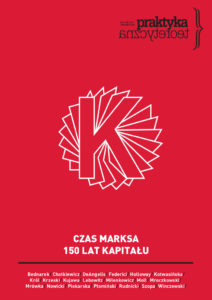Zarządzanie ryzykiem. O roli rynku instrumentów pochodnych w ekstrakcji i dystrybucji wartości dodatkowej
Risk management. On the role of derivatives in extraction and distribution of surplus value
Author(s): Tomasz PłomińskiSubject(s): Recent History (1900 till today), Marxism, Political economy, Financial Markets
Published by: Uniwersytet Adama Mickiewicza
Keywords: Marx; fictitious capital; derivatives; financial capital; financialization;
Summary/Abstract: The derivatives market, widely understood as a primary cause of a recent global crisis, is commonly seen as a space of purely speculative movement of fictitious capital. In the course of the 20th century, a theory of quantifiable risk (as opposed to unquantifiable uncertainty) has been developed, giving capital, together with a series of deregulations from 1970s onwards, a new toolset for managing the precarious nature of value production: namely, derivatives, a financial instrument enabling the trading of risk exposure abstracted from the assets themselves. Taking Marx’s notion of “fictitious capital” with its irreducibility to a mere “casino for capital” as a starting point, we aim to present an interpretation of the derivatives market as an apparatus of risk management that is strictly connected to the production of surplus value. The functional character of derivatives is seen as: 1. a means of subordination of the working class in a form of debt relation and secondary extraction of surplus value as credit interest, 2. technological advancement of value redistribution among the capitalist class and stabilization of income flow. Both phenomena are tied to the inherent contradictions of the derivatives market that are potentially harmful to the very process of capitalist accumulation.
Journal: Praktyka teoretyczna
- Issue Year: 2017
- Issue No: 25
- Page Range: 176-193
- Page Count: 18
- Language: Polish

